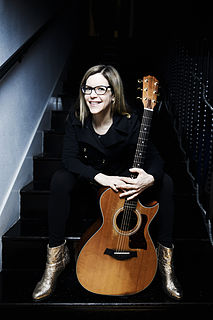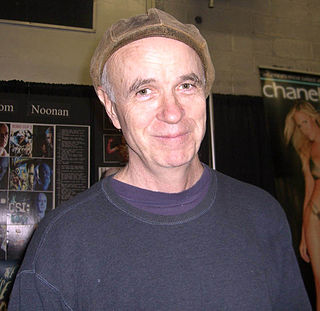A Quote by Jake Tapper
When you write fiction, there were things about Washington that I've experienced and wanted to write about, including the swamping nature of it, the compromises people come to town and are forced to make, and also, when writing about Joe McCarthy, the indecency and lies that he put forward that people didn't take a stand about.
Related Quotes
I wrote lots of scripts that never got made and they were terrible. I thought they were good at the time. You can't write two scripts and expect your career to take off. Keep writing. Be you. Be original. A lot of people go for a genre, which is fine if you can do that really well, but we all have such layered histories. We all come from a unique background. Write about your past, write about you. Or make stuff up, but make it about something that really matters.
I often write about reconciling. Reconciling, or maybe half-reconciling between antagonists, between people who are deadly enemies. I write about reconciliation, but not as a miracle, as a slow, gradual process of mutual discovery - discovering one another. I write about sad, sober, sometimes heart-breaking compromises.
The secret to writing is writing. Lots of people I know talk about writing. They will tell me about the book they are going to write, or are thinking about writing, or may write some day in the future. And I know they will never do it. If someone is serious about writing, then they will sit down every day and put some words down on paper.
When I see an entire community disenfranchised, it disturbs me. Not that I'm a message guy, per se. I write about people. I like to write about human beings, not crap political rhetoric. I've tried to avoid that all my life. When I wrote about soldiers in Vietnam, I wasn't trying to make a political statement. I was trying to write about how screwed things were for soldiers, and how they still are.
People write about getting sick, they write about tummy trouble, they write about having to wait for a bus. They write about waiting. They write three pages about how long it took them to get a visa. I'm not interested in the boring parts. Everyone has tummy trouble. Everyone waits in line. I don't want to hear about it.
I don't want to write poems that are just really clear about how I'm aware of all the traps involved in writing poetry; I don't want to write fiction that's about the irresponsibility of writing fiction and I've thrown out a lot of writing that I think was ultimately tainted by that kind of self-awareness.
I think that were I in the middle of an obsession to write about, say, sudden oak death in California or my grandchildren or time and memory and how they look when you get to be in your sixties, and I thought, "Well, yes but people are dying every day in Baghdad," I wouldn't feel guilty about not writing about Baghdad if I didn't have any good ideas about how to write about it.
. . . the whole idea of WHAT HAPPENED WAS.... is not about dating. It is more about people who are not committed to who they are or are indifferent about their life in general, which is how I felt about myself when I wrote it. I had turned 40 and I was unhappy and I wanted to write about that. Dating just became the framework. . . . I like all those fringy, weird, nonverbal, quiet, tiny little things, those powerful interchanges between people, things that go unsaid, that people know are happening all the time but nobody wants to talk about. That's what I want to make movies about.

































